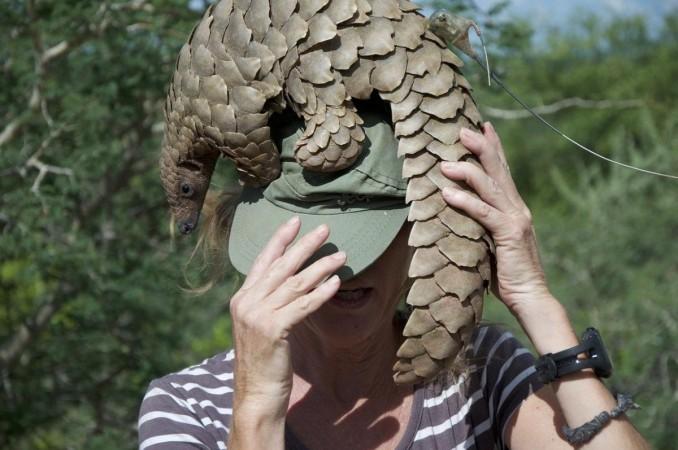For long, bats were confirmed to be the original coronavirus source, but now it seems there's another source as well - the Pangolins are known to carry viruses related to Covid-19.
Quoting lead researcher Dr Tommy Lam of The University of Hong Kong, a BBC report said, "Two groups of coronaviruses related to the virus behind the human pandemic have been identified in Malayan pangolins smuggled into China."
![[Representative Image] Bats flying near the Shwedagon Pagoda in Yangon, home to over 500 thousand bats during winter. flying bats](https://data1.ibtimes.co.in/en/full/676284/flying-bats.jpg?h=450&l=50&t=40)
Dr Lam further added, that while the role of Pangolins as "the intermediate host of the SARS-CoV-2 outbreak remains to be confirmed, sale of these wild animals in wet markets should be strictly prohibited to avoid future zoonotic [animal to human] transmission."
Who's the deadly virus carrier? The bats, the pangolins, both or more?
Since pangolins carry the virus closely related to Covid-19, scientists are of the opinion that "the sale of animals in wildlife markets should be strictly prohibited to minimise the risk of future outbreaks."
Pangolins are threatened with extinction. It is one of the most-commonly illegally trafficked mammals from Malaysia to China and other markets. While pangolin meat is considered a delicacy, its scales are in high-demand in traditional Chinese medicine.
An insightful article on coronavirus source said, "The closest match to the human coronavirus has been found in a bat in China's Yunnan province." Tracing back into the recent past, it seems the disease outbreak started from a local seafood market in Wuhan, Hubei province, central China and now it's grown, spread far and wide through the human transmission to become a global pandemic.
While bats carry coronavirus, that is closer to the human virus, the only difference here is that the virus needs a human host to invade and cells do not replicate itself.
Further, a study published on February 3, found that "The bat coronavirus shared 96% of its genetic material with the virus that causes COVID-19. Bats could have passed the virus to humans, but there are key differences between the receptor-binding domain (RBD) sites in the two viruses. This suggests that this specific bat coronavirus did not directly infect people, but could have been transmitted to people through an intermediate host."
In view of the fact that the virus was found in smuggled pangolins, questions are raised on how did they contract the virus? If they were transmitted from bats during their illegal trafficking to China or from other native habitats in Southeast Asia? Further studies are needed to understand the sequence of events on how the coronavirus spread from bats and pangolins to humans, to understand their role and risks in the future to mankind.
Threatened by extinction: What should be the future plan of action?
Nature conservationists are concerned, if further discovery on Pangolins could lead to persecution of the already endangered mammals, nearing extinction anyways. Perhaps, it's time right for the international communities to pressure their governments to end illegal wildlife trade.

China has already imposed a ban on the consumption of meat from wildlife in the wake of the current coronavirus outbreak, a similar plan of action is being considered in Vietnam and other parts of Asia.
In the wake of the current global crisis, economic recession, and lockdown imposed by governments owing to the pandemic, it is of emergence to understand and arrive at the right source of SARS-CoV-2, to prevent similar such occurrences in the near future.
As researchers continue to delve, discover and contemplate if it's the bats or the pangolins, we could possibly perhaps with no real reason, blame it on one and all of the natural habitats for being the deadly virus carriers and transmitters. A slew of genetic analyses is needed to find concrete evidence and conclusive proof. As the mystery deepens on who's responsible to bring in the Coronavirus, let's abide by the government instructions for now - Stay Home, Stay Safe!








